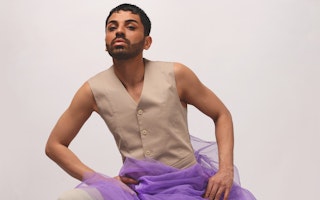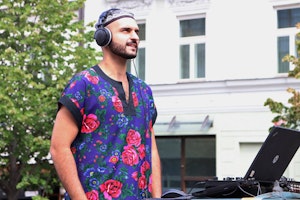I Am Roma, I Am an Albanian Citizen
By Xhesika Korra
Forty Romani families became homeless in the midst of winter 2012 after being evicted from their temporary lodging. A year earlier, these same families had been forced to abandon their settlement near the railway station in Albania’s capital, Tirana.
Such incidents have not ceased to occur, but our readiness to mobilize Albanians against them has significantly improved. The news of the evictions reached me when I was with fellow Roma youth at one of the first meetings of the Institute of Romani Culture in Albania (IRCA), a grassroots Roma initiative I helped establish that mobilizes youth to help in their communities. The group was formed to react to injustices in the Roma community, and the evictions were our first test.
Within days, we managed to organize the first-ever Roma peace march in Albania in solidarity with the evicted families. To our surprise the march attracted dozens of people and media. It was then that we realized this could be the beginning of something bigger. Our message was one of equality for all Albanians, and our slogan, “I am Roma, I am an Albanian citizen,” meant that we have rights and obligations that, as citizens, we intended to honor.
There are about 60,000 Roma across Albania, and they face numerous challenges. Many live in settlements that lack basic infrastructure. They face forced evictions and discrimination, and equal access to education and employment remains a problem. A small number of Roma children graduate from secondary school, and even fewer—only four percent—graduate from college or university.
At IRCA we decided to focus on equality. To date most other Roma organizations had focused on service provision, but not actually advocating for the rights of Roma. “I am Roma, I am an Albanian citizen” became the core message of the network of Roma and non-Roma youth which we established at IRCA and called the Romani Corps of Volunteers.
This body numbers hundreds of members and over the last two years has worked to promote equal opportunities in 14 communities across Albania. It is made up entirely by volunteers who support their peers in various ways: helping them apply for college, finding the right scholarship opportunities, promoting Roma customs, and liaising between teachers or health care professionals and Roma families who do not speak Albanian. The journey from a handful of people starting a grassroots campaign to a network of volunteers across Albania was long and difficult.
One thing we learned along the way was that the root of discrimination is the lack of understanding of Roma culture and identity by our fellow Albanians, and that Roma themselves must work to change this. Among the first things the Corps of Volunteers did was to bring Romani art and culture to the forefront. With the help of municipalities and local festivals, we organized Roma art fairs involving both Roma and non-Roma artists.
From there we moved on to education, helping Roma students apply for university scholarships. By increasing the representation of Roma students at Albanian universities, we created ambassadors to represent our background and identity. We are currently working to include sessions on Roma culture in teacher trainings, to help them become more culturally sensitive towards Roma pupils and better support their education and development.
We now have the power to make our voices heard, at both the grassroots and policy levels. Even though there is still a long way to go, some of our recommendations have already been heard. For example, at our suggestion, the Albanian government created transitory centers that host any Albanian family (not only Roma) for three to four months in the event that they lose their home.
We are ready to move on to our next goal: tackling unemployment among Roma youth. We know that building bridges between the communities and the private sector through internships and vocational trainings will create opportunities and build confidence. A stronger Albania will be one where all citizens are equal. There are no better advocates for this than Albanian youth working side-by-side for better representation and the equality of all citizens.
The Institute of Romani Culture in Albania is a grantee of the Open Society Foundations.
Xhesika Korra is a project coordinator at the Institute of Romani Culture in Albania.


